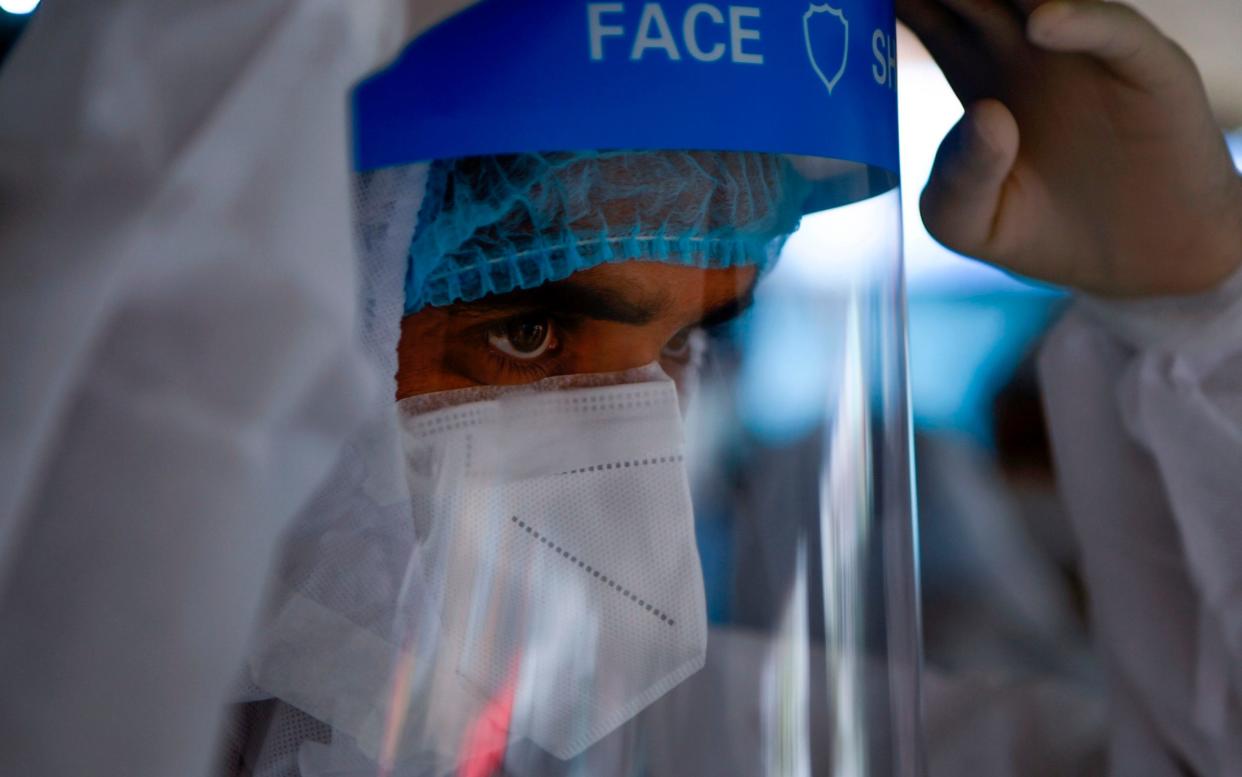Muslim and Sikh doctors should get special PPE because of their beards, says BMA chief


Muslim and Sikh doctors should be given special personal protective equipment (PPE) hoods to stop them having to shave their beards, the British Medical Association (BMA) has said.
A cross-party inquiry into the handling of the coronavirus crisis heard that religious medical professionals should be provided with "suitable alternatives" to standard PPE masks, which have forced many to "abandon their religious practice and shave".
Dr Chaand Nagpaul, the chairman of the BMA, said many doctors had felt "under pressure" to comply, and called for hospital trusts to be supplied with more suitable protection.
He said: "The good thing is that there are face and head coverings and ways in which to protect that accommodate for having a beard.
"Those alternatives were not readily available in hospital trusts in particular, and therefore some doctors were being put under pressure to either wear PPE that wouldn't have given them the same protection, or feel that they were being difficult, or even worse have to accommodate their own faith-based requirements to wear normal PPE."

Dr Nagpaul also insisted that the Government's test and trace system needs to be "fit for purpose" ahead of a possible second wave of coronavirus, admitting that the delay in the roll-out of a contact tracing app is "an area of serious concern".
He told the newly formed All-Party Parliamentary Group on Coronavirus, chaired by the Liberal Democrat leadership contender Layla Moran, that the Government needed to ensure "everything is in hand to deliver proper contract tracing and isolation".
Dr Nagpaul said families should be able to check the coronavirus transmission rate in their local area in the same way as checking the pollen count. He said "transparent, readily available" information about the spread of the virus would be key to suppressing a second wave.
The same session of the group heard that medical professionals have "very high" levels of concern about the possibility of a second spike in virus cases.
Niall Dickson, the chief executive of the NHS Confederation, said that the combination of a spike in cases with "exhausted staff" and efforts to restart services could prove "challenging".
He told MPs: "I would say in relation to the second spike issue or something coming, the levels of concern among our members – the people who are leading NHS trusts, who are leading in primary care and all levels in the systems – is very high.
"There's real concern about winter and the compounding factors there, but also about an earlier spike."
Mr Dickson also called for an "Amazon-style" system for ordering PPE, whereby healthcare providers could order protection and have it delivered the next day. He admitted the distribution system in place for PPE at the start of the pandemic "very quickly fell over" because of huge demand.
The BMA's Dr Nagpaul called for greater transparency over PPE stockpiles and criticised the Government for publicising "arbitrary figures" of "billions of items of PPE."
He said that ministers had been "blinding us with figures" when it "doesn't really matter whether it's one billion or two billion". "It's whether it's available in a ward, whether it's available in a GP practice that counts," he said.
Dr Nagpaul noted that single gloves are classed as one item, when medics need to wear a pair at once.
In a written submission to the inquiry, the BMA called for telephone and video consultations with GPs to be "further expanded" after the virus pandemic as they had been "beneficial to many patients".

 Yahoo News
Yahoo News 
